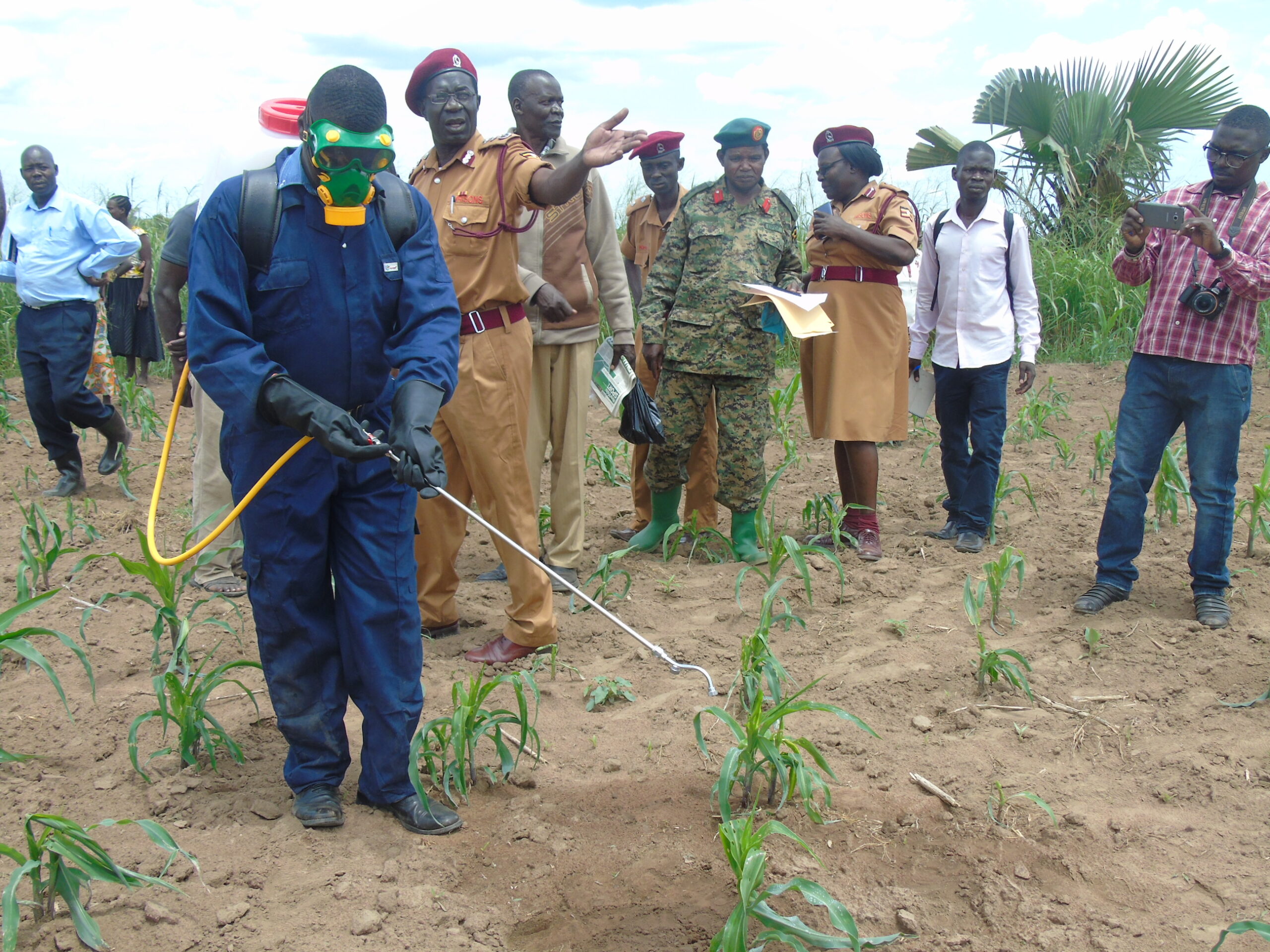PADER– Several farmers in Pader district are counting losses following the invasion by Fall Armyworms that have destroyed several acreages of maize, simsim, millet, and sorghum, resulting in instability on the side of farmers who used loans.
Armyworms are usually active at night and tend to hide underneath garden and lawn debris during the day.
The most affected farmers are those in the sub-counties of Ogom, Pokor, and Pajule.
One of the affected farmers, Yansio Kalenga Ogibu, told theCooperator that they are troubled as the office of the district agriculture officer has not responded to farmers’ cries.
“Imagine the rains came late and what we have put in the soil has also been eaten up by the worms. We realize our household income through farming and if we are not helped we are in danger,” he said Ogibu whose five acres of maize have been eaten up by the worms.
James Okiror who grows mainly maize in Ogom Sub County is scared of the loan he borrowed to farm because the worms have destroyed most of the maize he had grown.
Okiror said farming in the area faces many challenges and that the worms have worsened the situation. He urged the government to support the households whose gardens have been attacked by the armyworms.
District Agricultural Officer Pader Seydo Opoka, acknowledged the presence of the moths in the district and said many farmers are now counting losses.
“The rains came late and the little that is being grown has also gone to waste. We are equally concerned, looking at the damages our farmers are counting. We have written to the Ministry of Agriculture for support in terms of chemicals to spray the worms, but no response yet,” he said.
He however advised farmers to get support themselves by getting chemicals that can help them out as they wait for the response from the ministry.
In 2019, the worms invaded a farm belonging to Amuru government prison, destroying several acres of maize at that time.
Meanwhile, both the commercial and smallholder farmers in Amuru district have been advised to reach out to banks where the government allocated agriculture loans so that they can boost their production.
In an interview with theCooperator, District Agricultural Officer Amuru, Simon Peter Komakech, said that some farmers who borrow loans individually have not succeeded and urged farmers to work in groups.
“Well, the commercial farmers have been able to get the loans but several small-scale farmers have gotten challenges. They should register first, have bylaws in place so that the district can direct them on what is needed to get those loans,” he said.
His remarks come at the time when several farmers urging the banks where agricultural loans were channeled by the government to relax the tough conditions set to borrow funds. Farmers say they use community land and therefore do not have collateral demanded by the banks.
Amuru district is known for rice, maize, and Soybean growing with several commercial farmers using modern technologies.
Joyce Akullu, who deals in rice growing in Pabbo Subcounty, noted that the district leaders have not been helpful to the farmers as far as technical support is concerned.
“We struggle to have the documents in place for banks to look at but when some farmers are sent back twice, they lose hope and they pull out,” she said.
She urged the district leadership and banks to discuss how best they help farmers access cheap loans.
The agricultural loans scheme was designed to finance business activities in agricultural production, processing, and marketing in 2010.
Buy your copy of theCooperator magazine from one of our countrywide vending points or an e-copy on emag.thecooperator.news
